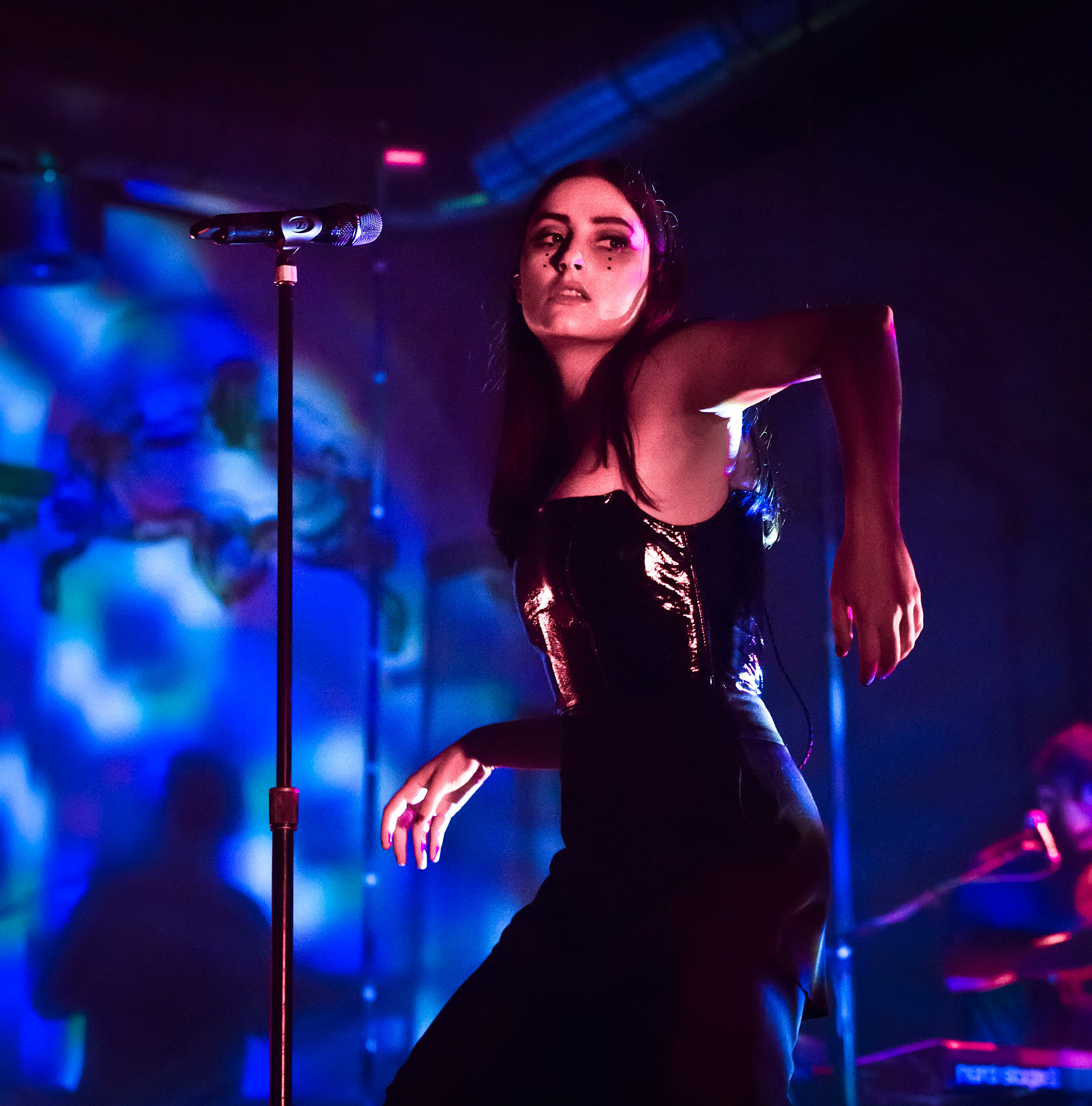
Singer-songwriter Jillian Banks, known as Banks, helped popularize the brooding R&B sound that’s dominated pop this decade. Now, after a two-year self-imposed hiatus, she returns with her third album, III. In it, she explores pain, desire and personal growth, mixing vulnerable songwriting with experimental and genre-blending production.
TIME: What did you do differently with this album?
Banks: First of all, I rap. There’s also a voice I sing with that comes from a different part of my throat. It felt new to me because there’s an innocence to the songs that I’ve never let out. Usually I’m the type of artist where I still need sleep at my regular hours. But making this album, I’d be in the studio until 5 a.m. and I wanted to do it again the next day.
In college you majored in psychology. Has that influenced your writing?
I’ve always been interested in human dynamics. Maybe it stems from the same place that makes me write music: I need to understand things because I feel so much. It’s meditation for me, making music. My artistic mind is always a step ahead of the other side, and I’m constantly trying to catch up.
III tracks your arc from naive romantic to wise woman. What was that transformation like?
The more experiences you have and the more pain you’ve gone through, the wiser you become. I was in one of those turning points, confronting stuff that kept me from enjoying my life. When you’re trying to overcome certain thought patterns, you have to take a shovel and dig in the mud every day.
You’ve also referenced a “duality” that you’re working past in this album.
Everybody has so many different layers to them. In general something I’ve had a hard time digesting is that things are not just black and white, and life is messy. I write about the messiness. Messiness can be exciting, but it can be painful. No matter what I go through, I always want to have the hope that I associate with youth and kids—that wide-eyed naivete that you have when you’re little before you recognize anything dark. I think that’s what I meant by duality—having all the parts to who you are in one body of work.
There’s a line—“I let you push me around till now”—that has a lot of anger and intensity, but also feels empowering. Is your music meant to empower?
Of course. The most powerful I ever feel is when I’m writing or performing. How you felt: that is how I felt when I sang it. It’s a declaration of where I’m at now and an ode to where I’ve been, and that’s why it opens the album.
You began blending electronic, R&B and hip-hop with your debut back in 2013. Now that’s a prevalent style. Do you consider yourself a pioneer of that trend?
It’s not for me to say I was a pioneer. I don’t really think of music in genres; I don’t even listen to music when I’m making it. Any time something’s coming from an authentic place, it doesn’t matter what style it is.
You’ve opened for the Weeknd and cite artists like Fiona Apple and Lauryn Hill as inspiration. What sets you apart?
You can give painters the same three colors, and one could be inspired by the other, but the pictures will look completely different. You may not be able to put into words why they’re different, but it’s their own energy.
More Must-Reads from TIME
- Cybersecurity Experts Are Sounding the Alarm on DOGE
- Meet the 2025 Women of the Year
- The Harsh Truth About Disability Inclusion
- Why Do More Young Adults Have Cancer?
- Colman Domingo Leads With Radical Love
- How to Get Better at Doing Things Alone
- Michelle Zauner Stares Down the Darkness
Write to Raisa Bruner at raisa.bruner@time.com